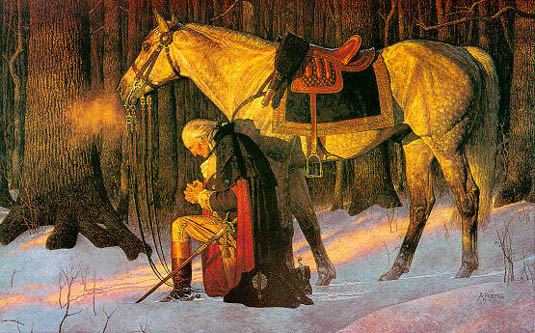Introduction
As we celebrate Independence Day, a time to reflect on our nation’s history and values, it is crucial to remember the spiritual foundations that have shaped America. Throughout our history, great theologians like Jonathan Edwards, Charles Finney, and Billy Graham have fervently called for revival and national adherence to Christian principles. Today, as we face numerous challenges, their messages are as relevant as ever. This Independence Day, let us draw inspiration from their legacy and turn back to God through united, fervent prayer.
Jonathan Edwards: The Call for Extraordinary Prayer
Jonathan Edwards, a key figure in the First Great Awakening, was known for his profound emphasis on prayer and revival. In his treatise “An Humble Attempt,” Edwards called for Christians to unite in extraordinary prayer for the outpouring of the Holy Spirit and the advancement of Christ’s kingdom.
“From the whole we may infer, that it is a very suitable thing, and well-pleasing to God, for many people, in different parts of the world, by express agreement, to come into a visible union in extraordinary, speedy, fervent, and constant prayer, for those great effusions of the Holy Spirit, which shall bring on that advancement of Christ’s church and kingdom, that God has so often promised shall be in the latter ages of the world.”
Edwards believed that revival was not just a spontaneous act of God but could be brought about by persistent, united prayer. His call for prayer is a powerful reminder that spiritual renewal begins with the humble and collective seeking of God’s face.
Charles Finney: The Power of Revival and Moral Reform
Charles Finney, a central figure in the Second Great Awakening, expanded on Edwards’ foundation by emphasizing the importance of personal repentance and moral reform. Finney’s revivals were marked by intense prayer meetings and a strong call to holiness.
“Revival is not a miracle, but it is brought about by the use of means; the means, however, must be adapted to the end; they must be the kind that will move the mind of God. The right use of means for a revival involves the diligent and united efforts of Christians in prayer and in the promotion of the work.”
Finney’s approach highlighted that revival was achievable through the dedicated efforts of believers. His integration of prayer with social action, particularly his advocacy for abolition and temperance, demonstrates the profound impact that faith-driven activism can have on society.
Billy Graham: A Modern Voice for Spiritual Renewal
In the 20th century, Billy Graham emerged as a leading voice for evangelical Christianity. Through his nationwide and global crusades, Graham called millions to Christ, emphasizing the need for personal conversion and national repentance.
“The problems of the world will never be settled unless our national leaders go to God in prayer. It is my firm belief that prayer is the answer to the problems of this great country and the world.”
Graham’s message was clear: for America to thrive, its leaders and citizens must turn to God in prayer. His crusades were characterized by their simplicity and profound impact, demonstrating that the core message of the Gospel has the power to transform lives and nations.
A Call to Action: Turning to God on This Independence Day
As we celebrate the birth of our nation, let us heed the calls of Edwards, Finney, and Graham. These theologians remind us that the strength and prosperity of America are deeply rooted in its spiritual foundations. Today, our nation faces significant social, political, and economic challenges. In response, we must turn to God, seeking His guidance and intervention through fervent, united prayer.
“If my people, who are called by my name, will humble themselves and pray and seek my face and turn from their wicked ways, then I will hear from heaven, and I will forgive their sin and will heal their land.” (2 Chronicles 7:14)
This verse encapsulates the heart of the message from Edwards, Finney, and Graham. It is a divine promise that when we humble ourselves, seek God earnestly, and turn from our sinful ways, He will respond with forgiveness and healing.
Conclusion
This Independence Day, let us come together as a nation in prayer. Let us seek God’s face, repent of our sins, and ask for His guidance and blessing. Just as in the days of Edwards, Finney, and Graham, God is ready to pour out His Spirit and bring about a great revival. May we rise to the occasion, united in prayer and purpose, to see our nation healed and restored.
As you gather with family and friends to celebrate, take a moment to pray for our country. Reflect on the legacies of these great theologians and their unwavering belief in the power of prayer. Let their examples inspire us to seek God wholeheartedly and work towards a future grounded in faith and righteousness.
Sources for Further Reading
- Lectures on Revivals of Religion by Charles Finney
- The Works of Jonathan Edwards
- Billy Graham Evangelistic Association
By turning back to God and committing ourselves to fervent prayer, we can ensure that the spiritual foundation of America remains strong for generations to come.

